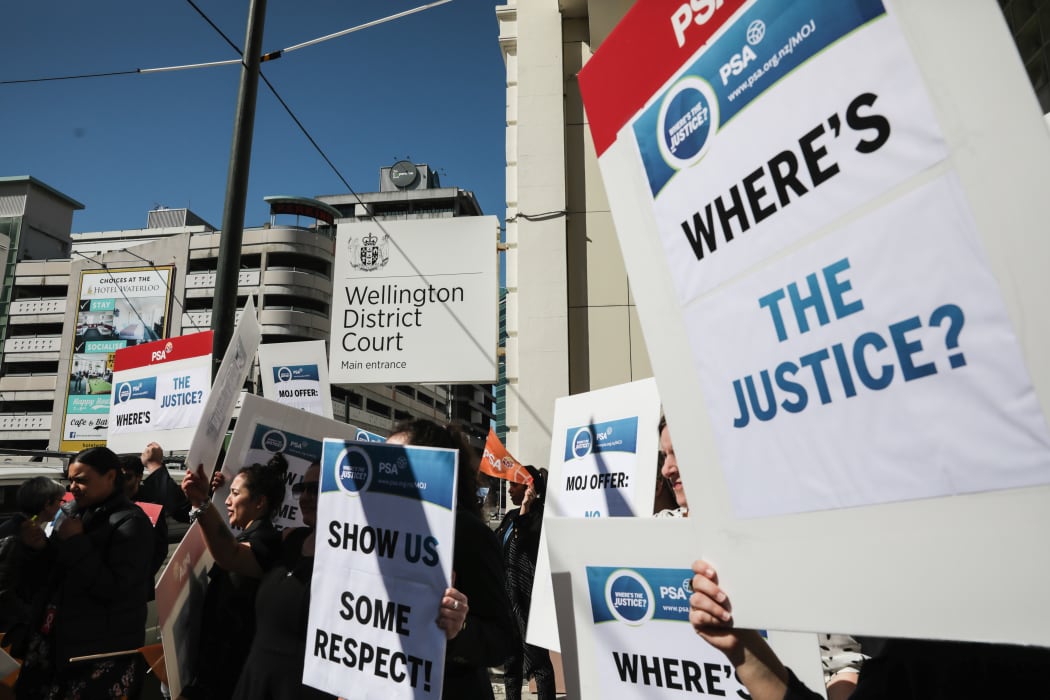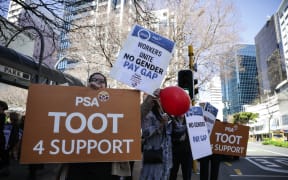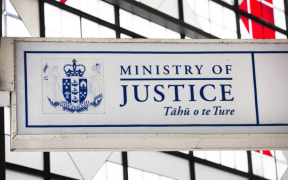Court staff walked off the job today as part of nationwide strike action over pay.

Placards from an earlier court staff strike Photo: RNZ / Richard Tindiller
Staff picketed outside courthouses throughout the country from 12.30pm to 5pm amid an ongoing industrial dispute with the Ministry of Justice.
The half-day strike comes after the Employment Court dismissed an injunction application by the Government to stop short notice strikes, coined 'lightning strikes'.
The application was made on the basis that a notice period of 30 minutes was disruptive to the courts and unsafe for those in them.
But in the judgement released to RNZ, Judge Mark Perkins said strikes were supposed to be inconvenient and any step to reduce their effectiveness could only be taken if there were sound reasons for doing so.
"The rights to strike and lockout, so long as they meet the requirements of the statutory provisions, are well enshrined in employment law and protected by the provisions of the Act.
"The rights to strike and lock out are part of ensuring a balance to the relative negotiating positions of the parties in industrial bargaining."
Judge Perkins said there was no arguable case that lightening strikes were unlawful and dismissed the application.
The New Zealand Public Service Association (PSA) national secretary Glenn Barclay said he was very pleased with the result.
"It's actually quite a big victory, not just around the Ministry of Justice, but for workers in the union movement. It's been clarified by the court that there's no reasonable notice required around industrial action."
He said today's action, which followed partial strike action including a ban on working overtime and working to rule by taking common tea breaks, would have disrupted court proceedings.
"I think all of this has had a significant impact on the ministry. It's a big deal for our members to take action; this is not something they want to do."
He said he was disappointed the bargaining was taking so long and hoped to reach an agreement soon.
"We're striking because our members within the ministry have suffered low pay for many years, have a gender pay gap that's among the highest in the public service and are generally feeling really undervalued.
"There's also an ongoing battle with the pay system; whether we can get rid of performance pay and have a fair and transparent pay system."
The ministry's chief operating officer Carl Crafar said the ministry remained open and committed to reaching a settlement.
"The situation remains fluid and we are doing our best to manage the impact on our customers and our people."




